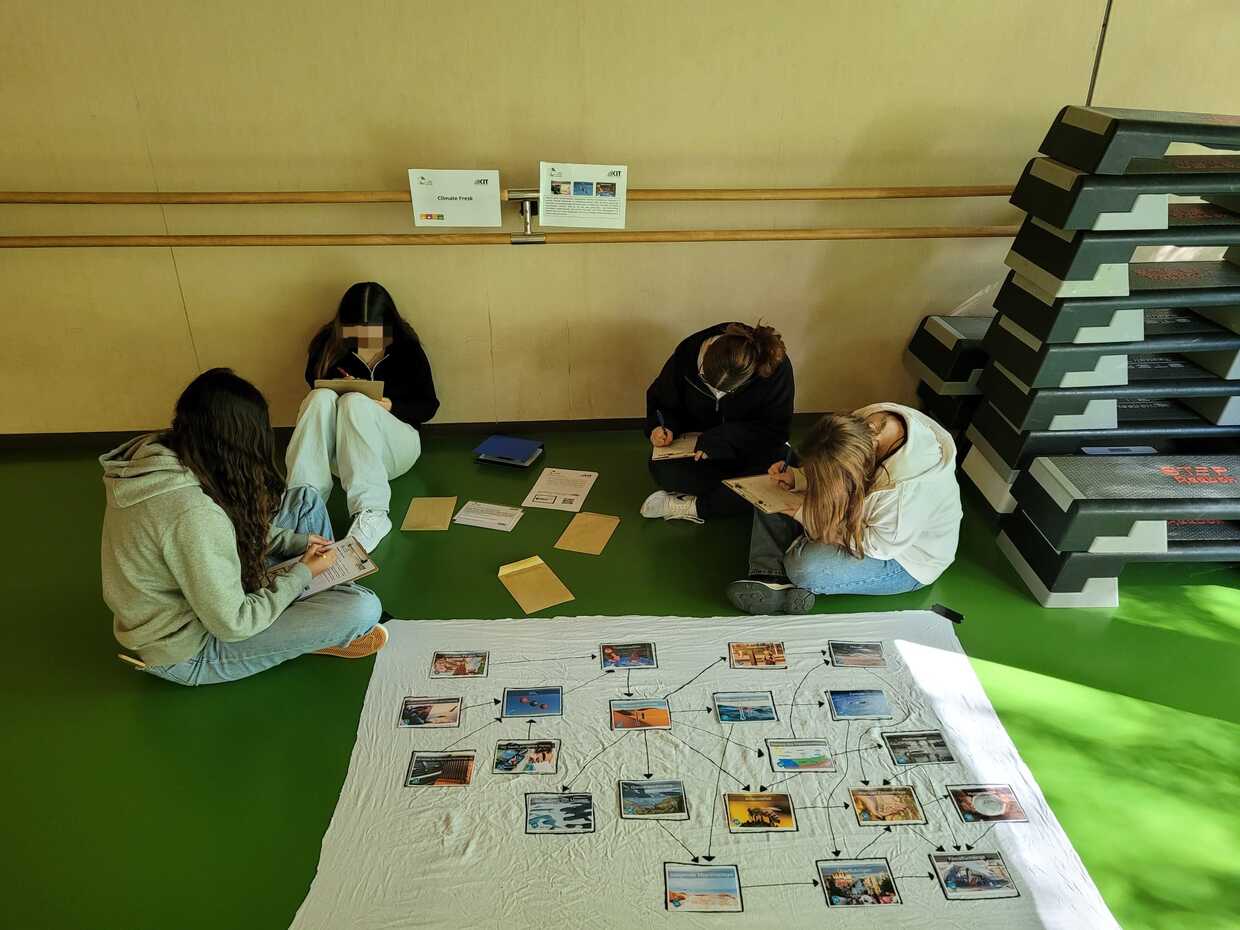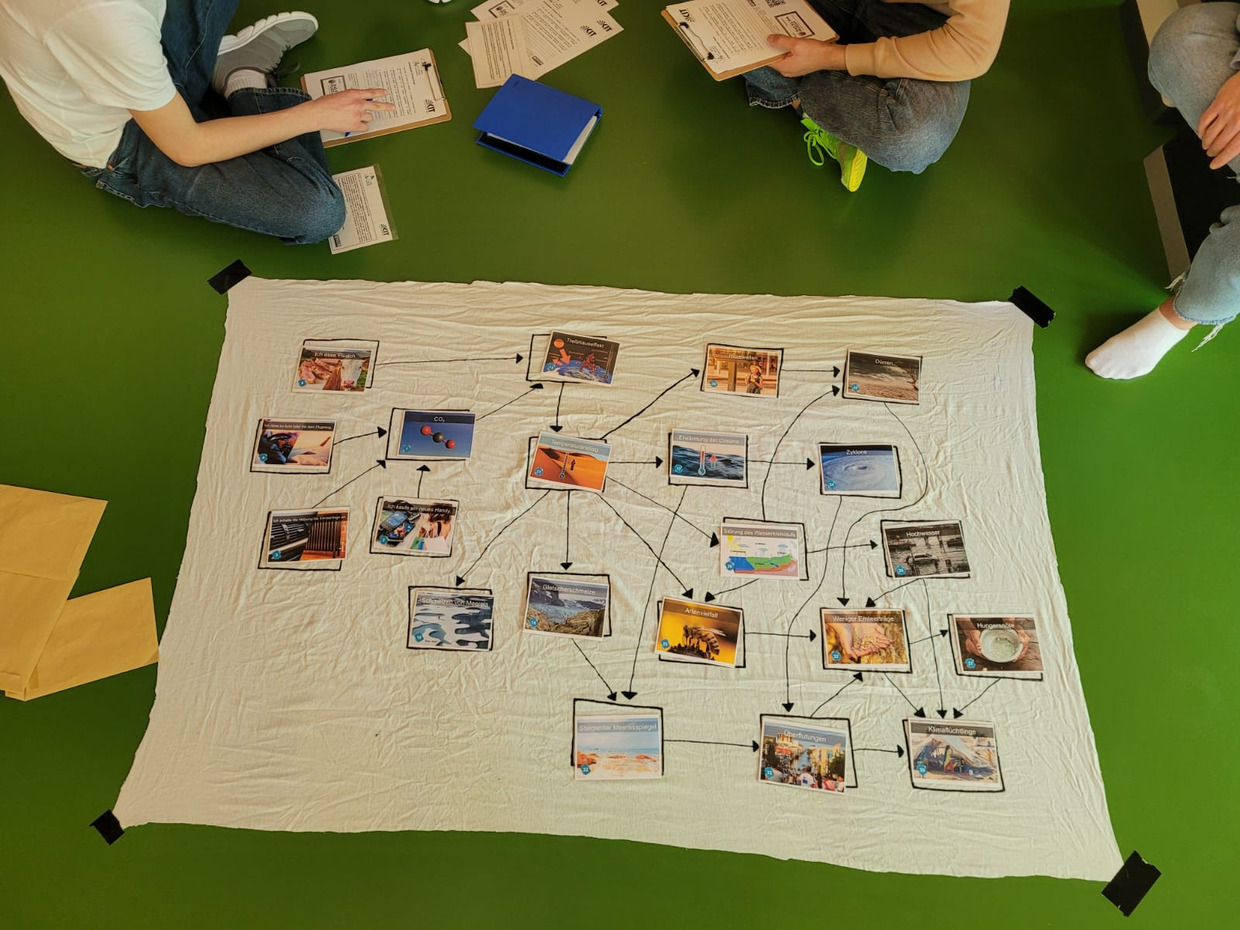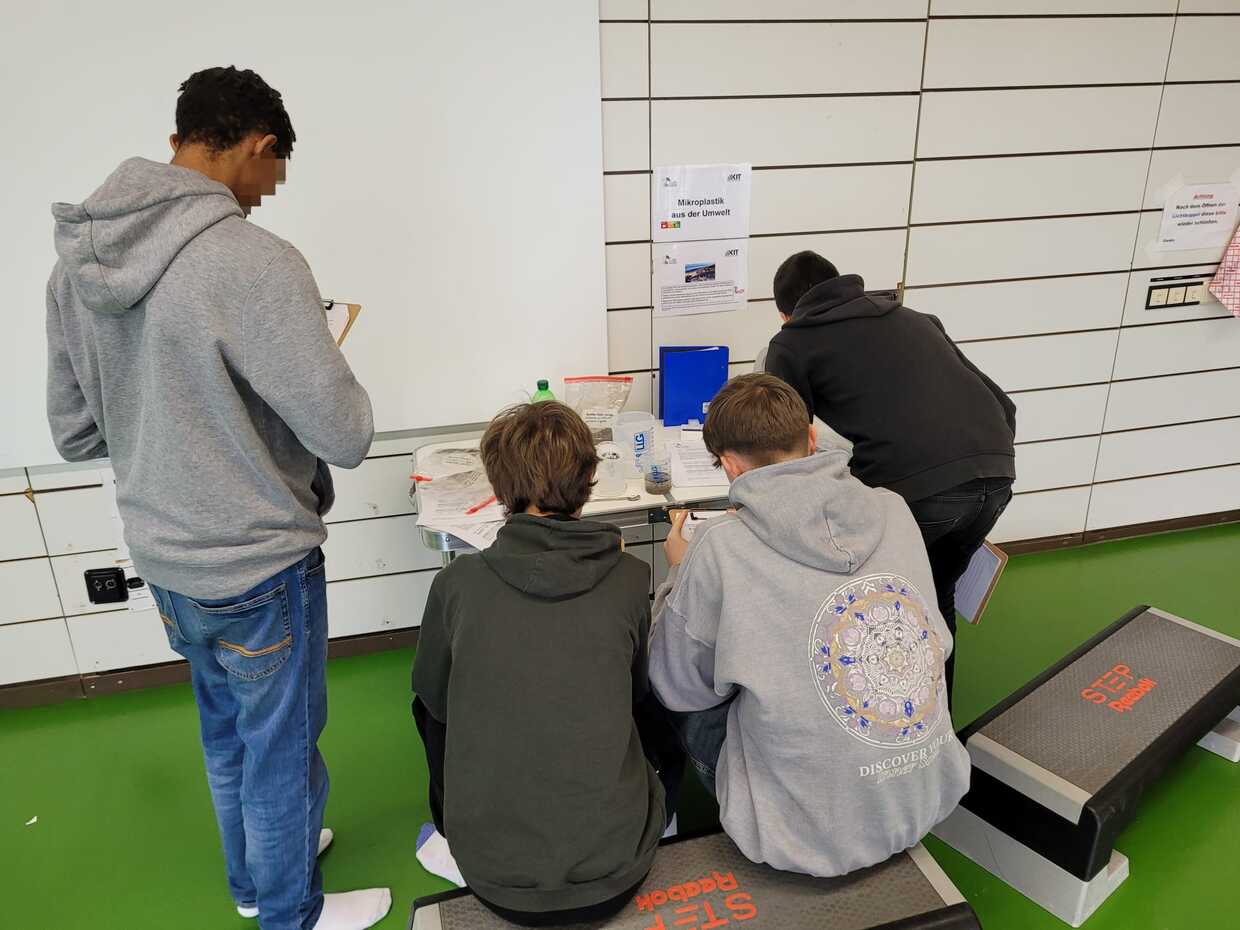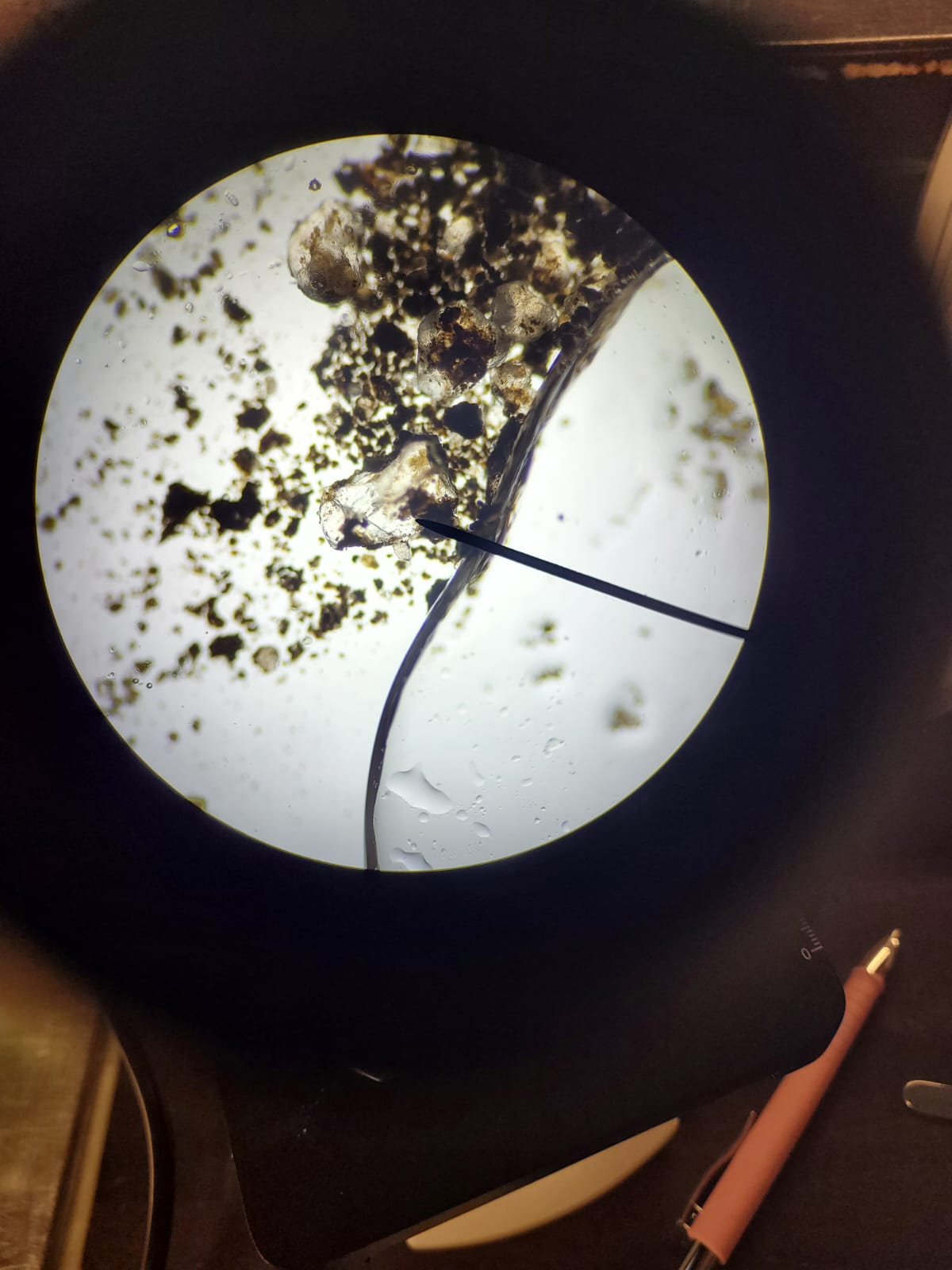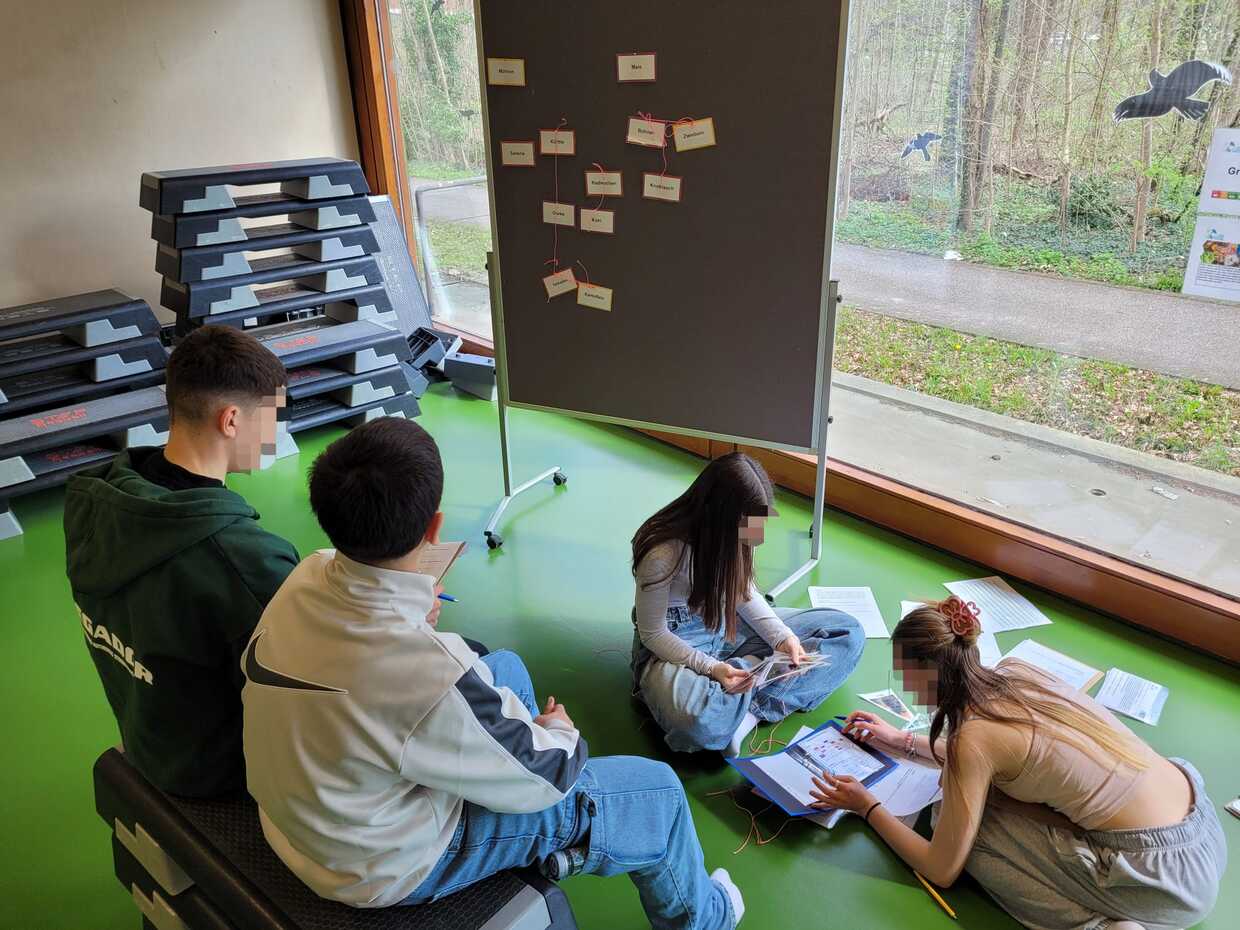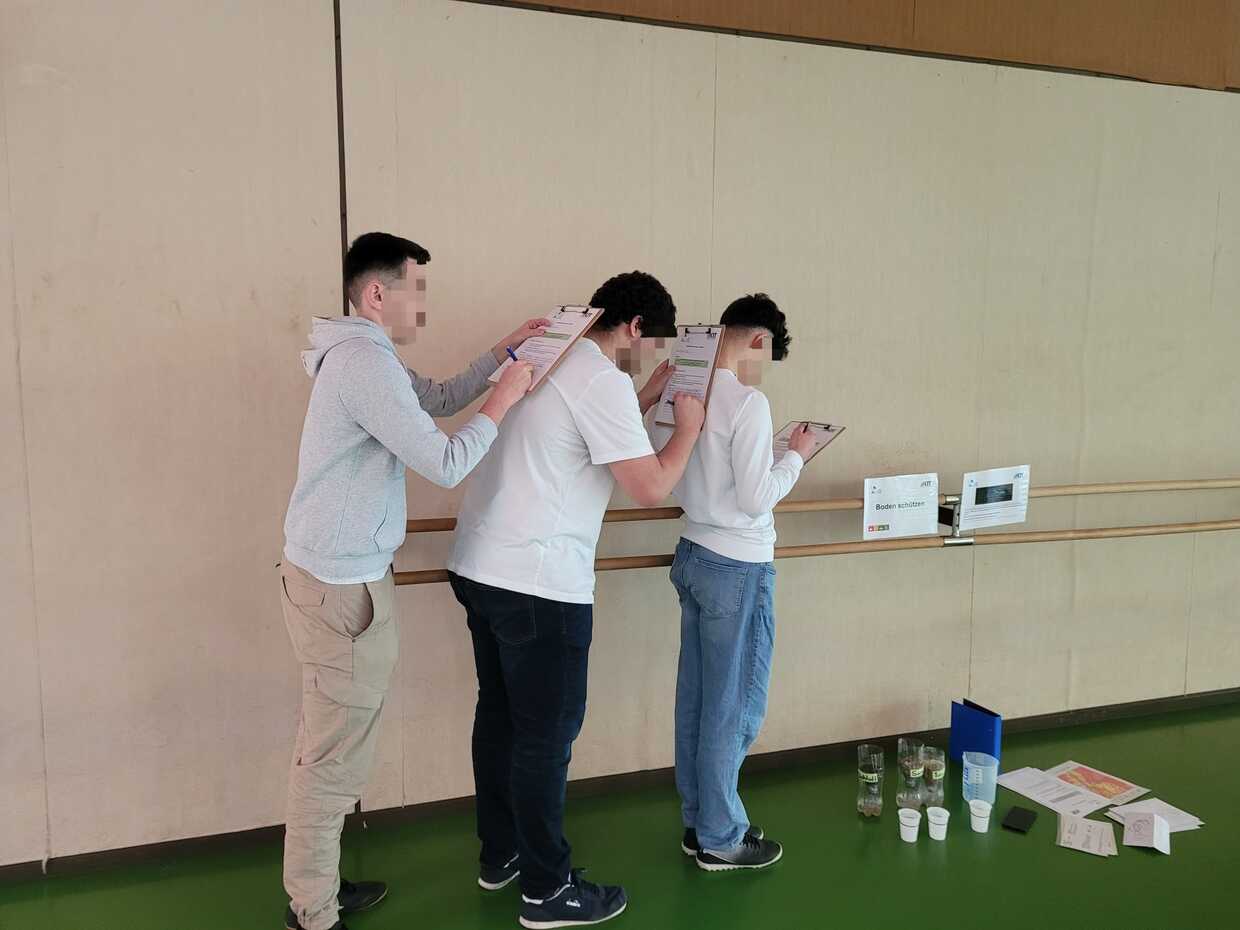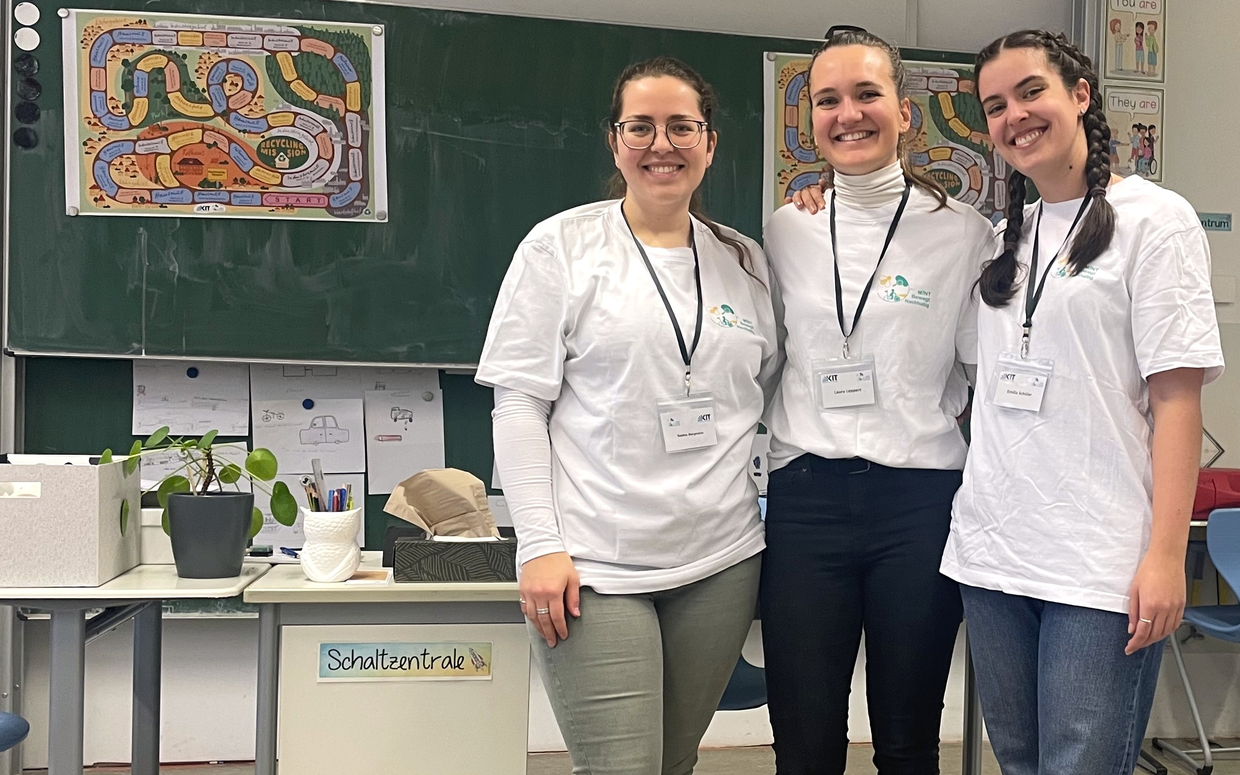Topics and Impressions
In cooperation with the MINT Campus, material packages on the three different topics soil and water, nutrition and plastics have been created and can be downloaded free of charge:Soil and water Nutrition Plastics.
The materials for the learning circle "Müllführerschein" are also available as Open Educational Resources (CC BY-SA 4.0) and can be freely downloaded, used and shared here.
Immerse yourself in a world that combines education, sustainability and fun. Join us for unforgettable moments that not only develop skills but also raise awareness for a sustainable future. Be part of the change and discover how STEM and sport can make a lasting difference to our world.
We currently offer visits on four different topics: Soil & Water, Nutrition, Plastic and the Waste Management License learning circle. We cover a wide range of topics such as social justice, environmental protection and global thinking - always with an interdisciplinary reference within the STEM subject network and a sporty touch.
The stations in our school laboratory have been specifically designed to promote the skills of “recognizing”, “evaluating” and “acting”. To ensure that our stations meet the highest educational standards, we have developed them in cooperation with subject advisors from the Seminar for Teaching Development.
The aim of the stations is always to introduce the pupils to the topics in an interactive and practical way, as well as being informative. This gives students the opportunity to strengthen their skills and play an active role in shaping a sustainable future by visiting our school laboratory.
Soil & Water
Soil & Water
The stations in this subject area all deal with the topic of “Soil & Water”. For example, different types of soil and their properties are explored across subjects, microplastics in soil samples are examined, differences between conventional and organic farming are discussed and interactions between different plant species are addressed. The topic is particularly suitable for the subjects geography, mathematics and science & technology.
SDG's
| Station | SDG's | |
|---|---|---|
|
Protect the soil |
(4) quality education (12) responsible consumption and production (13) climate action (15) life on land |
    |
| Climate-Freske |
(2) zero hunger (4) quality education (12) responsible consumption and production (13) climate action |
    |
|
Geometric garden puzzle |
(4) quality education (12) responsible consumption and production (17) partnership for the goals |
   |
|
Green harmony |
(4) quality education (12) responsible consumption and production (13) climate action (15) life on land |
    |
|
Manganese nodules |
(12) responsible consumption and production (13) climate action (14) life below water |
   |
Pictures: (CC0)
Nutrition
Nutrition
The stations in this subject area all deal with the topic of “Nutrition”. For example, they reflect on different food transportation routes, compare the CO2e-emission values of different dishes, critically examine food labels and work on the impact of fruit and vegetables on the climate. We have also compiled the children's and young people's recipes in a seasonal cookbook. The subject area is particularly suitable for the subjects of biology, science & technology and geography.
SDG's
| Station | SDG's | |
|---|---|---|
|
Fairtrade under the microscope |
(1) no poverty (8) decent work and economic growth (12) responsible consumption and production |
   |
|
The true price |
(2) zero hunger (4) quality education (12) responsible consumption and production |
   |
| How the cattle live |
(2) zero hunger (12) responsible consumption and production (15) life on land |
   |
|
Climate-friendly diet |
(2) zero hunger (4) quality education (12) responsible consumption and production (15) life on land |
    |
|
Food labels |
(2) zero hunger (4) quality education (12) responsible consumption and production (13) climate action |
    |
|
Seasonal cookbook |
(2) zero hunger (4) quality education (12) responsible consumption and production (15) life on land |
    |
|
Transportation routes |
(2) zero hunger (4) quality education (9) industry, innovation and infrastructure (12) responsible consumption and production |
    |
Pictures: (CC0)
Plastic
Plastic
The stations in this topic area all deal with the topic of "Plastic" in one way or another. For example, different types of plastic are presented across disciplines and then a plastic mixture is separated using the float-sink method, an experiment to investigate plastic in the environment is planned and carried out, plasticisers are analysed and plastic in the sea is discussed. The subject area is particularly suitable for science & technology.
SDG's
| Station | SDG's | |
|---|---|---|
|
Microplastics from the environment |
(4) quality education (12) responsible consumption and production (15) life on land |
   |
|
Plastic in the sea |
(4) quality education (6) clean water and sanitation (12) responsible consumption and production (14) life below water |
    |
| Real-World-Stories |
(4) quality education (12) responsible consumption and production (14) life below water (15) life on land |
    |
|
Float/sink procedure |
(4) quality education (6) clean water and sanitation (14) life below water |
   |
|
Plasticisers |
(3) good health and well-being (4) quality education (6) clean water and sanitation (13) climate action |
    |
Pictures: (CC0)
Learning Circle Waste Management License
Learning Circle Waste Management License
The stations in this topic area all deal with the topic of "Waste" in one way or another. Different ways in which waste is disposed are described in an interdisciplinary way. How is it separated at home and what actually happens afterwards? In an exciting game that requires strategy, students can find out what happens to the waste in a landfill. But not all waste is the same. For example, students can turn an old drink carton into a wallet. This thematic area is particularly suitable for biology, nature occurrences & technology.
We offer to come to your school with the waste management licence and our own supporting programme.
SDG's
| Stationen | SDG | |
|---|---|---|
|
Turning old into new |
(4) quality education (9) industry, innovation and infrastructure (12) responsible consumption and production (13) climate action |
    |
|
The recycling mission |
(4) quality education (9) industry, innovation and infrastructure (11) sustainable cities and communities (13) climate action |
    |
|
Waste separation |
(4) quality education (9) industry, innovation and infrastructure (11) sustainable cities and communities (13) climate action |
    |
|
Composite materials |
Be curious! A new station is currently being built here. |
Pictures: (CC0)
If you and your class are interested, we would be delighted to welcome you.
For the Waste Management License learning circle, we offer to come to your school with a small supporting programme. Please feel free to inquire!
Further information (contact) can be found under our general conditions.


